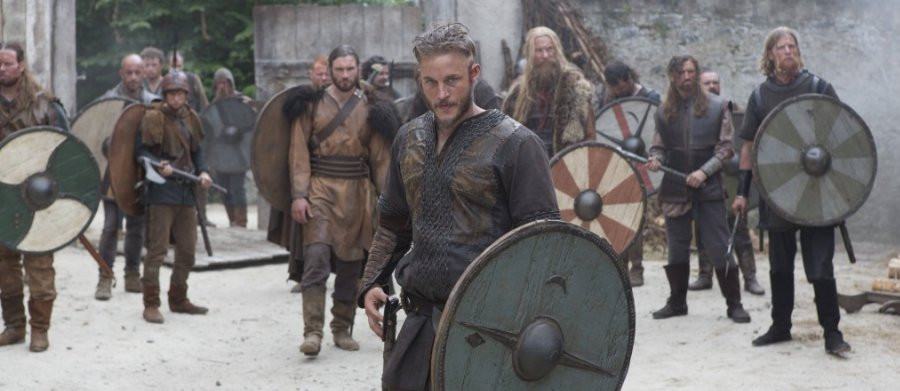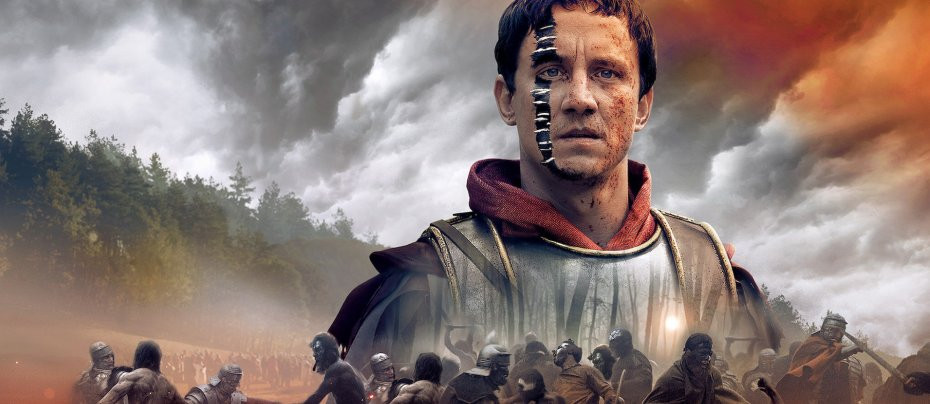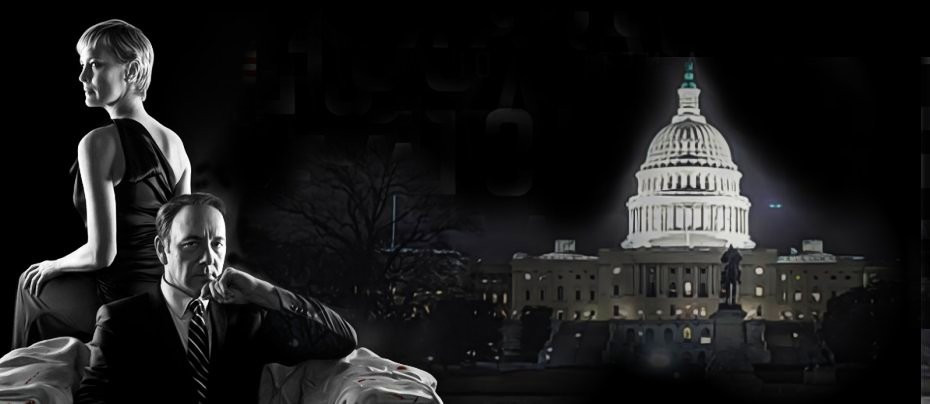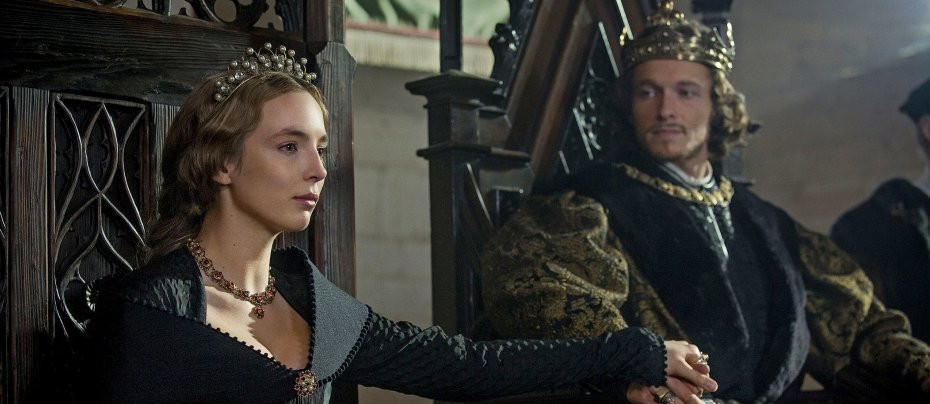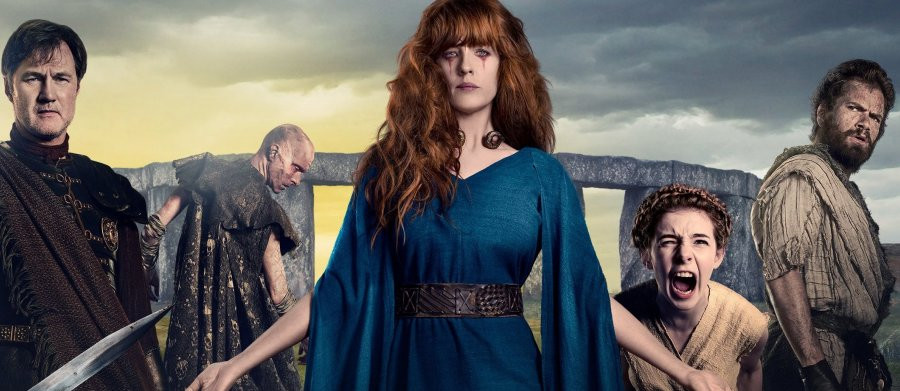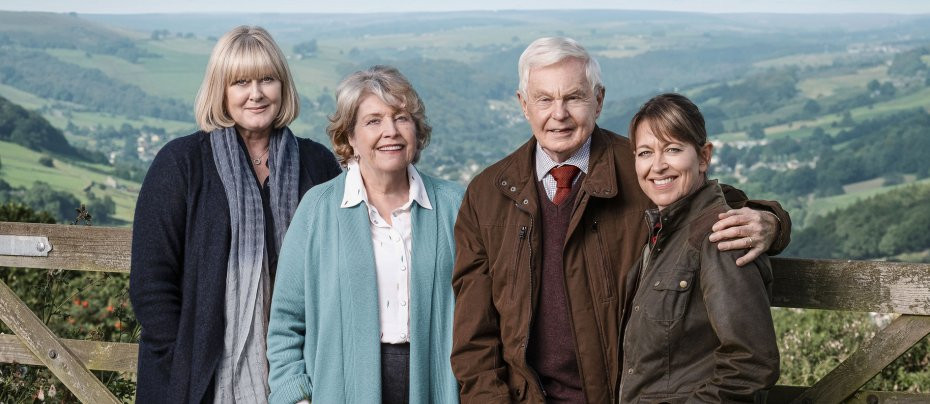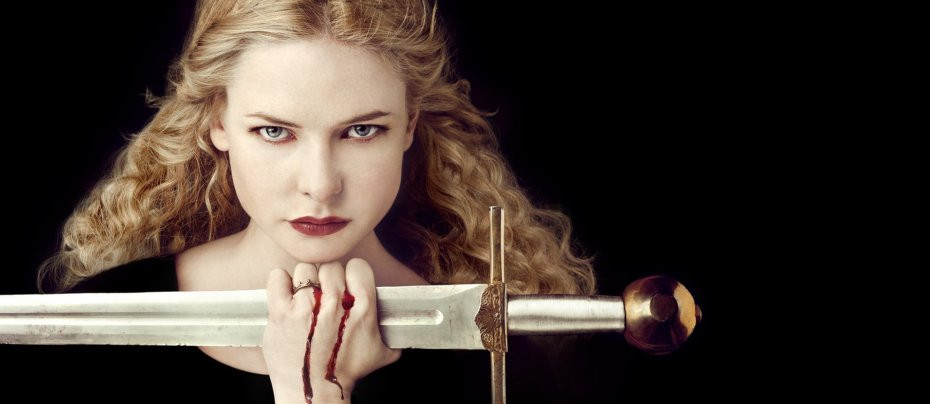
The White Queen
2013 - United Kingdom“The influence of Game of Thrones pervades the style and tone of the "miniseries" from the odd couple of the BBC and Starz”
The White Queen
Review by John Winterson Richards
The poetically named Wars of the Roses were in fact some of the most horrific in British history: much of the aristocracy was exterminated and the common people suffered proportionately; the Battle of Towton still holds the record as the biggest and bloodiest on British soil since Roman times. Yet the Wars of the Roses are barely known today except as a major influence on George R R Martin's 'A Song of Ice and Fire,' which was televised as Game of Thrones.

It is therefore no coincidence that The White Queen was filmed soon after the very successful debut of Game of Thrones. It was an obvious commercial move to make a direct competitor going back to the original source material - except that is not what the producers did: instead of basing their project on history, they adapted a trilogy by romantic novelist Philippa Gregory.
The result is a strange hybrid: it is history, but not quite; it is Game of Thrones, but not quite; it has elements of fantasy, but not quite.
Gregory has clearly done her research, but then she, or her adaptors, tend to pick and choose rather arbitrarily when to be accurate, so that the viewer can never be entirely certain whether what is on screen is true or not. While this is done in the name of increasing dramatic impact, much of the impact that comes from knowing that what one is shown really did happen is lost when one can no longer be certain that it did.
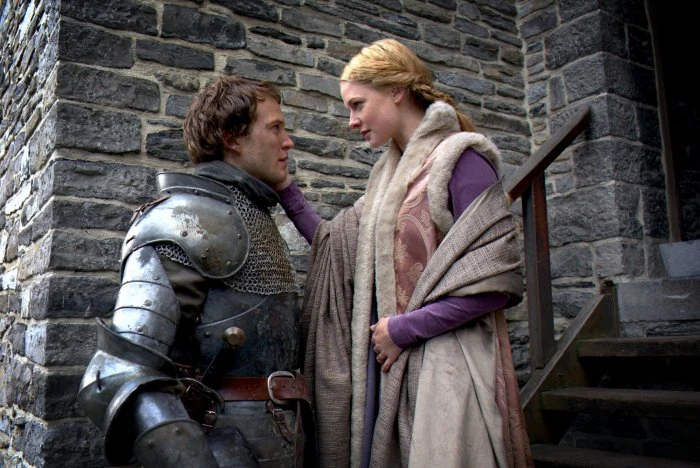
The influence of Game of Thrones pervades the style and tone of the "miniseries" from the odd couple of the BBC and Starz. However, the BBC being the BBC, one cannot expect HBO levels of violence and gore, even if there are plenty of bare breasts and gratuitous simulated sex scenes. These sit uneasily with the fairytale atmosphere of the piece. The Flemish locations are very pretty, and everything seems light and airy and clean and, frankly, unrealistic. Medieval Britain was for the most part a poor and very dirty place by our modern standards. In fairness, one can overstate this point, as much as the initial criticism did: in the production's defence, the Mid-15th Century was the dawn of the Renaissance and places like Flanders were indeed very wealthy, so that life for the upper classes at least could indeed look very glamorous. However, that is not how either historians or most viewers generally picture England at this time, and it all came across as a bit too pleasant to be true.
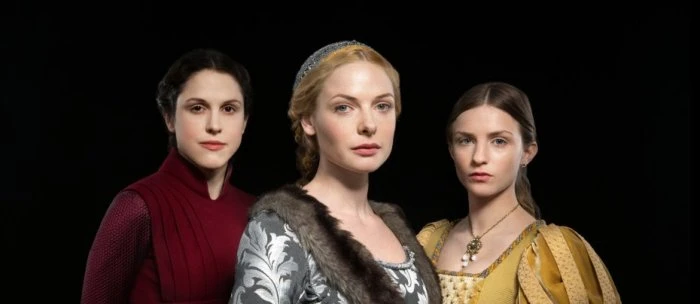
The romantic air of the production also owes a great deal to its origins in what used to be called "women's fiction." One is probably not allowed to point this out anymore, but it cannot be denied that the publishing industry is now very aware of the statistic that most novels are bought by women, and it is one of the few industries in which many, perhaps most, decision makers are female. The practical effect of this is a greater emphasis on women as protagonists. It is no bad thing that in genres like historical fiction we are now offered greater insight into the perspectives of fifty per cent of the population who were previously often relegated to supporting roles, if not ignored altogether. We are therefore given a more complete view of history by bringing women forward.

There is, however, a price to be paid for this. The danger is that the need for strong female characters may overemphasise their role in what happened and give a misleading impression of their status in history. The fact remains that many of the decisive moments were basically all-male gatherings such as Battles, Parliaments, and Councils. We see bits of these in The White Queen, but not enough either for historical accuracy or for dramatic excitement. Instead, we get lots of people talking and having unconvincing simulated sex until news comes through from an important military reverse offscreen.
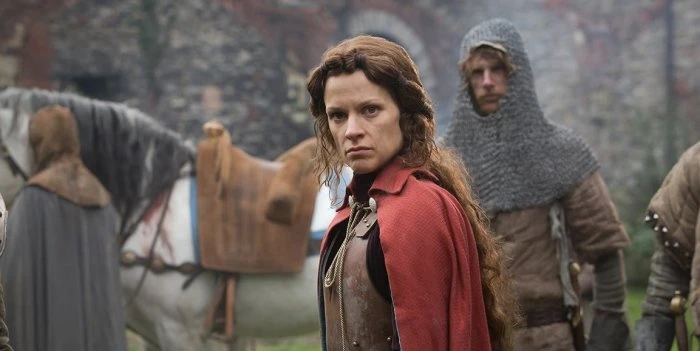
The irony of this is that it fails to make it clear how extraordinary it was that some truly remarkable women really did play a hugely significant role in these events in what was generally a very masculine culture, where wealth and power ultimately came down to the ability to hit the other guy harder while wearing very heavy armour. For it is indeed true that the formidable Margaret of Anjou (played convincingly by Belgian actress Veerle Baetens) was in effect the leader of one of the two main factions for many years, the real ruler of England for part of that time, and the driving force in much of the tragedy that resulted. It also seems to be the case that the deal that really ended the Wars was brokered through a Welsh physician by two women, Margaret Beaufort and Elizabeth Woodville, bitter rivals from opposing factions, at a point when both had been immobilised. All the fictional stuff rather detracts from the fact that the most unlikely parts of The White Queen actually happened, or at least might have happened.
This applies not only to the role of women. England really did have two Kings at once, both simultaneously prisoners of the Earl of Warwick, "the Kingmaker." Then there are the famous murders in the Tower of London - not just the one but four of them. History offers so much wonderful raw material that the script would have done better sticking to the facts.

As it is, there is still sufficient history in the drama, and sufficient drama in the history, even if The White Queen succeeds better as drama than as history. That it does, on balance, succeed is due to the historical elements, to some good casting, and to a clever structure. Being based on a trilogy rather than a single novel enables the "miniseries" to take three different points of view, because each novel is centred on a different character: Elizabeth Woodville; Margaret Beaufort; and Anne Neville, the daughter of Warwick "the Kingmaker." Each is associated with a different faction but sometimes finds herself changing sides in response to circumstances.
This gives a fine sense of the partisanship of the situation, and also the chaos and uncertainty. Elizabeth is associated with the Lancaster faction but marries into the York faction, only to find herself having to compromise with Lancaster when the York faction splits. Margaret is loyal to Lancaster, but must hide this during a long period of Yorkist rule - which she does very poorly. Anne is a fierce Yorkist but finds herself a pawn when her father changes sides.
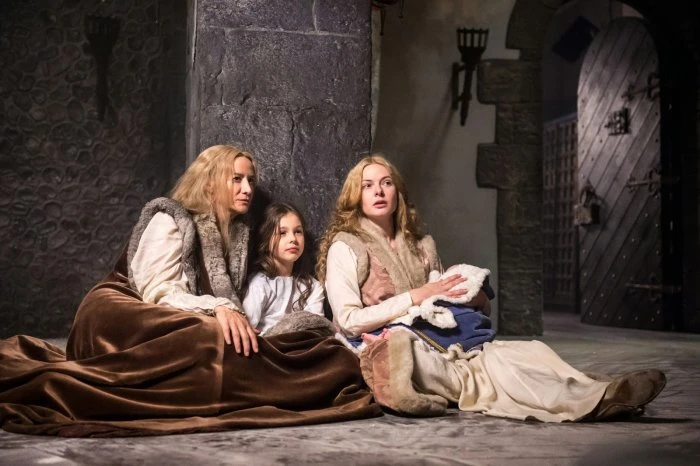
It is one of the great strengths of the production that none of the three is wholly sympathetic or wholly unsympathetic. The Woodville’s are a loving family, and we find it hard not to like them, but their ambitious social climbing leads to disaster. Margaret is sincere in her faith and her devotion to her son, Henry, but her amateurish intriguing costs innocent lives. Anne starts out as arrogant and rather ends up the same way, and while a period of humiliation in between does evoke some compassion for her, she does not develop into a better person as a result. Indeed, none of the three seems to learn much in spite of their well constructed character arcs.
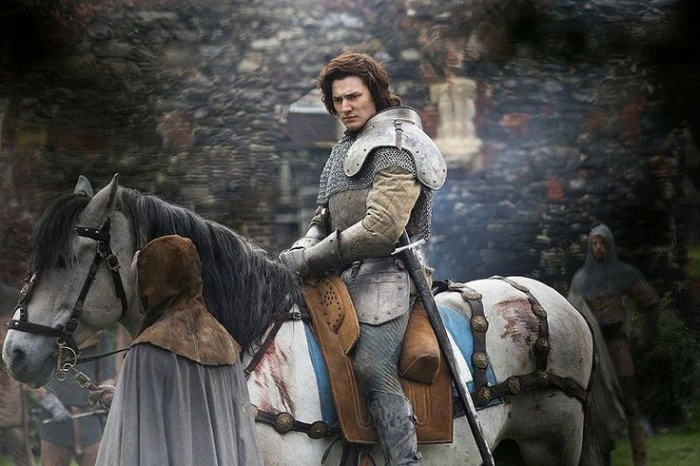
This may be due to the great weakness of adapting a trilogy, which is that there is only so much one can fit into a ten episode "miniseries." Important events are sometimes passed over very briskly, and there is little sense of attitudes and characters changing over time. This is especially true of the later episodes when the adaptation team must have felt under pressure to wrap things up and the tone alters rather abruptly. In particular, we do not get a real answer to one of the great historical mysteries: why did Richard of Gloucester, who in many respects seems to have been a genuinely good man, turn so viciously on the children of the brother to whom he had been so loyal?
The script does come up with an eccentric solution to a better known mystery: who murdered the young Edward V and his brother in the Tower? However, the rather contrived plotting does not convince, and the old tests of motive, means, and opportunity still point to Richard.
In another historical grey area, accusations of witchcraft made at the time against Elizabeth and her mother were purely political, but The White Queen pretends they were true to add a supernatural element which rather detracts from the seriousness of the rest of the story.
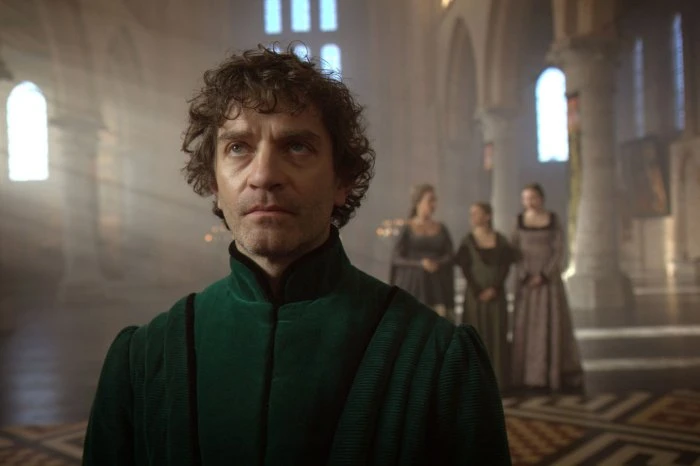
Max Irons is exactly how Edward IV is described in history - young, handsome, energetic, charming, and self confident, but also selfish and at the mercy of his overheated passions. Rebecca Ferguson is equally credible as Elizabeth, the young widow with whom he is suddenly obsessed. At first they seem the ideal romantic couple - only gradually do their separate and mutual flaws become more apparent. James Frain is a James Frain Warwick: he is always great value for money but casting him immediately tells us what the character is supposed to be when the real Warwick may have been more complicated. The always superb Janet McTeer is commanding but still human as Elizabeth's mother. Amanda Hale gives us a brittle Margaret: it is a fascinating performance, but the real Margaret was a shrewd player whose intelligence and piety would have kept her from the mistakes she makes in The White Queen. Michael Maloney and Rupert Graves are quietly moving and great fun respectively as her successive husbands - the former a rare beacon of decency here, the latter open in his ambition and unscrupulousness. Aneurin Barnard does well as both the good and bad Richard of Gloucester, and it is not his fault that the script does not give him enough to explain the transition between the two.
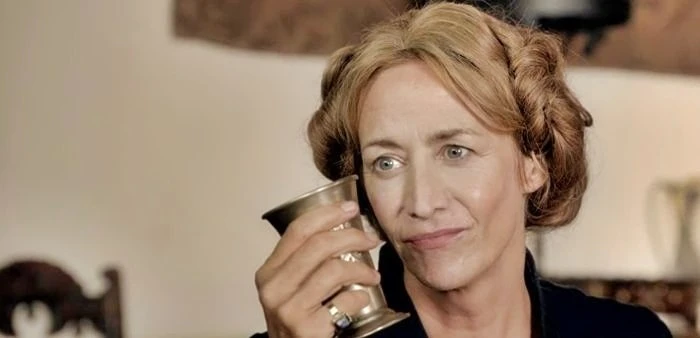
Indeed, the real frustration of The White Queen is that the basic story as it given by history and the strong cast together present us with a world where we might have been happier to spend more time, giving the characters more room to breathe and develop properly. Perhaps the real mistake of The White Queen is lack of ambition in restricting itself to the "miniseries" format instead of spreading itself over several seasons, perhaps one for each volume of Gregory's trilogy. If so, it is hardly the worst criticism a project can receive that there should have been more of it. Starz seem to have agreed: they commissioned two sequel series on their own without the BBC, 'The White Princess' and then The Spanish Princess, the latter of two seasons. However, the casts were almost entirely different and they lacked the more dramatic background of the Wars of the Roses proper. The White Queen itself therefore remains something of a missed opportunity, even if it is still a compelling tale told fairly well.
Seen this show? How do you rate it?
Seen this show? How do you rate it?
Published on March 23rd, 2022. Written by John Winterson Richards for Television Heaven.


